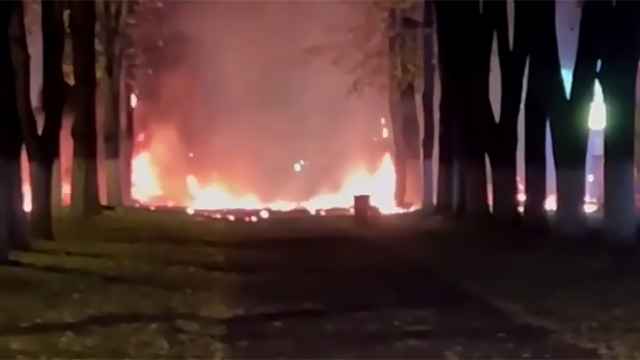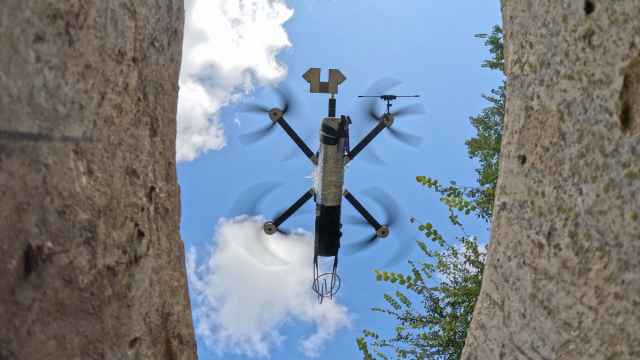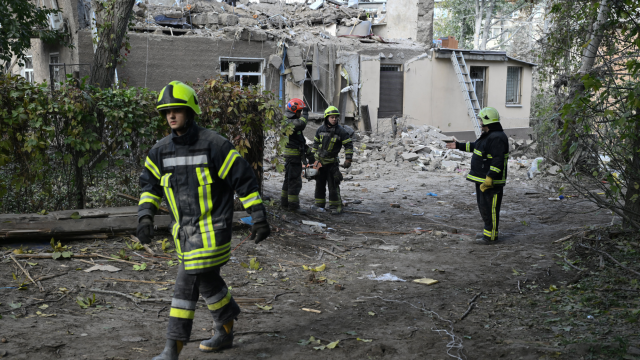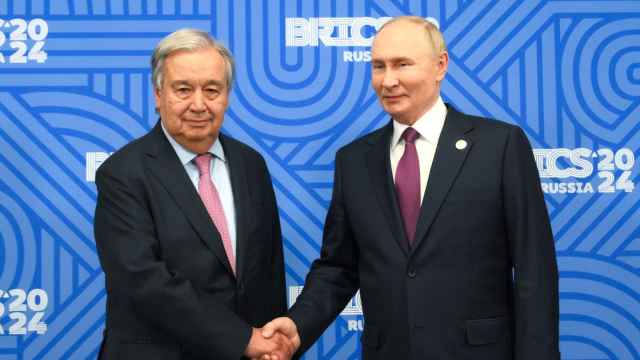Russia’s nearly monthlong offensive on the eastern Ukrainian stronghold of Avdiivka has made only minimal progress despite the battle forming the focal point of Moscow’s war effort for weeks.
The Russian army launched a large-scale offensive on Avdiivka, a small industrial hub north of the city of Donetsk, on Oct. 10 in what is seen as an attempt to break the deadlock at the front after 20 months of war.
Moscow is throwing large amounts of soldiers and resources into the fight in the hopes of capturing the small town that it previously unsuccessfully attempted to capture in 2014, when conflict broke out between Kyiv and pro-Russian separatists.
After four weeks of intense fighting with heavy artillery, tanks, and armored vehicles, Russia has captured some positions north, east and south of the town, taking heavy losses in the process.
Military analysts suggest that Russian troops are now attempting to encircle Avdiivka completely — an assertion repeated by Ukrainian officials this week.
“The third wave will definitely happen. The enemy is regrouping after a second wave of unsuccessful attacks,” Vitaly Barabash, head of the Avdiivka military administration, said Tuesday.
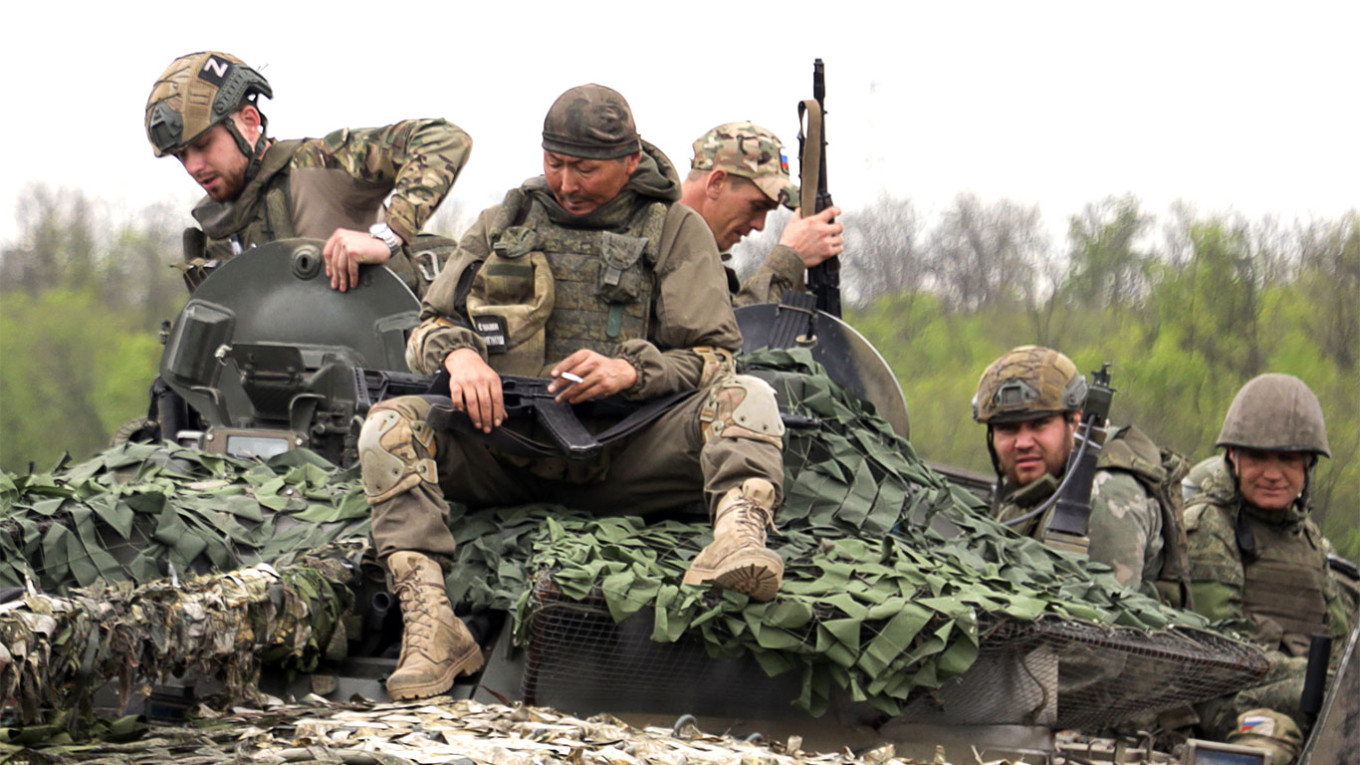
Ukrainian military expert Alexander Kovalenko initially saw the Russian army's offensive on Avdiivka as a targeted diversionary strike meant to distract Ukrainian forces from their counteroffensive in the Zaporizhzhia region to the south.
"In the summer, Russia also feigned an offensive in the Kupiansk and Lyman areas in the Luhansk region to distract the Ukrainian Armed Forces from Zaporizhzhia,” Kovalenko said. “It led to nothing because they lacked the strength to attack on a 150-kilometer-wide front.”
Kovalenko said that the Russian army is now redeploying units from the Luhansk region after the first wave of attacks on Avdiivka resulted in heavy losses.
Units are being withdrawn from the 2nd Combined Arms Army, which had made minimal progress on the Kupiansk front during the summer.
This includes the 21st Separate Motor Rifle Brigade, considered the most combat-capable in the northern sector of the front.
“At first I thought that the Russian command was acting illogically and irrationally, and it was all merely a PR stance. Now it's clear that the attack on Avdiivka is not an intentional diversion but a political decision,” Kovalenko said.
“They want to encircle and capture the city, just as they did with Bakhmut, to demonstrate their capability to advance and also use it to coerce Ukraine into negotiations through their intermediaries.”
Russian forces have made some progress south of Avdiivka, near the village of Severne. To the north, combat has unfolded around a large waste mound near the Avdiivka Coke Plant, a tactical elevation point for both sides.
Moscow appears to have captured the waste mound, according to pro-war military bloggers, though Ukrainian sources say this territory remains a “grey zone."
The U.S. think tank Institute for the Study of War (ISW) said on Oct. 13 that Russian troops have suffered heavy losses in equipment and personnel during the assault on the city.
Kyiv had heavily fortified Avdiivka ahead of Russia's anticipated offensive with concrete fortifications and dozens of kilometers of trenches.
"The Avdiivka fortified region poses a problem for Russia. It looms dangerously over Donetsk from the north and serves as a ready springboard for an offensive on the city,” said BBC News Russian military analyst Ilya Abishev.
“Russian authorities often claim that it is precisely from Avdiivka that the Ukrainian army shells Donetsk, although Ukrainian artillery can also reach it from other areas. Russia could do nothing with this ledge.”
He speculated that Moscow had planned to launch an offensive on Avdiivka if the Ukrainian army's attacks in Zaporizhzhia failed, but Kyiv’s forces merely slowed down their offensive. Despite this, Russia decided to stick to the plan.
According to Abishev, the Russian command initially used mobilized troops from the occupied part of the Donetsk region to attack Avdiivka, however, after they suffered losses, it brought in units transferred from the north.
Abishev noted that the current Russian military offensive is necessary for the Kremlin to demonstrate some success on the front, where for most of 2023 Russia has been on the defensive, apart from some localized attempts to advance.
"Reports of the Russian General Staff, which regularly claims to repel 'dozens' of attacks of the Ukrainian troops, the destruction of countless equipment and soldiers, now bore even the most ardent Z-patriots,” added Abishev.
“They do not see success and prospects for further war and demand results, but previous attempts at offensives on Vuhledar, on Maryinka, on Avdiivka itself, as well as near Lyman and Kupiansk, have resulted in significant losses and minimal gains.”
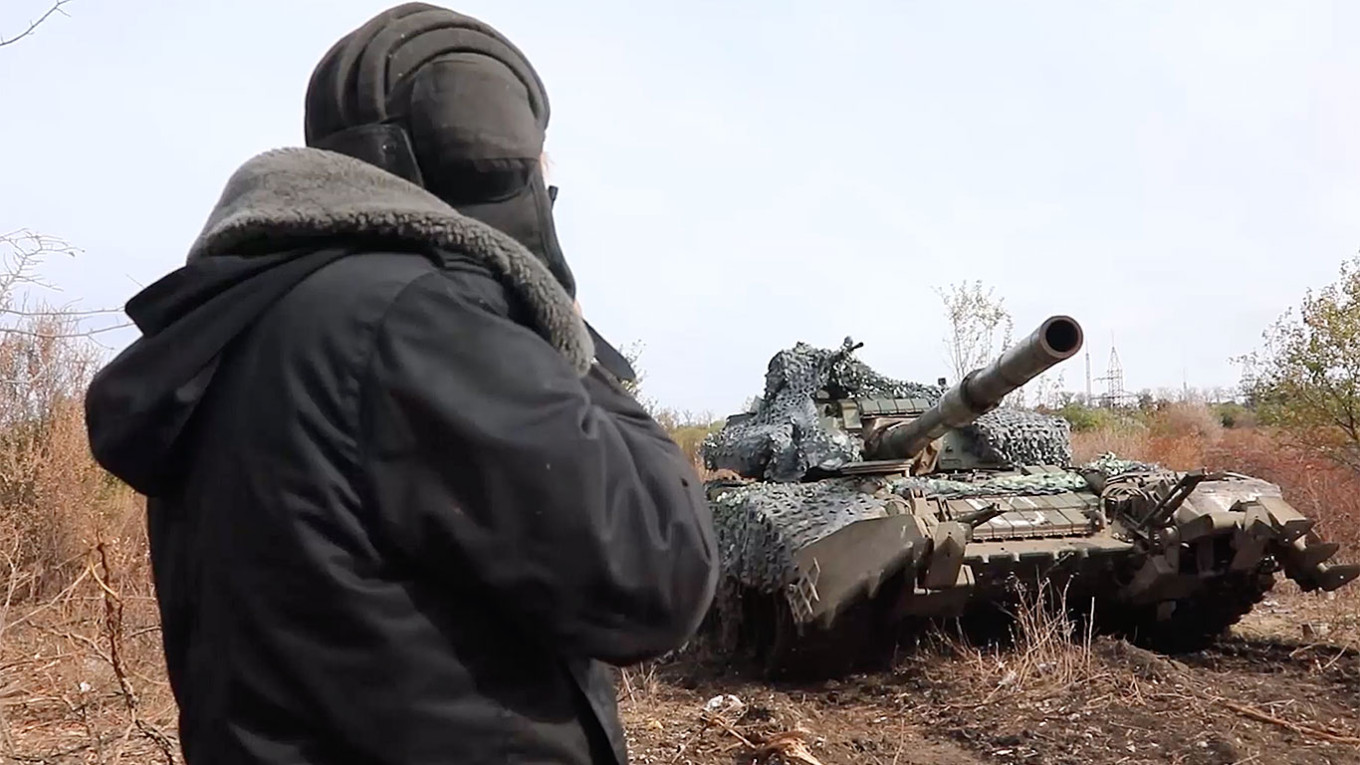
According to Kovalenko, the success of the Russian army's offensive near Avdiivka depends on the sacrifices Moscow is willing to make.
“There is no defense that cannot be breached. It all depends on the resources that will be deviated from it,” he said, noting that the city does not play a strategic role in the region.
“Step by step, Russia can achieve some slow progress in Avdiivka, at the cost of colossal losses. And if the technical and human resources spent do not matter to Moscow, then it may eventually surround the city and start street fights there, which will result in even greater losses than near Bakhmut, where less equipment was used.”
Because of the losses incurred in capturing Bakhmut, Russia lost the opportunity to advance in that area and then slowly began to lose the territories it had captured around the city, Kovalenko said.
Observers on both sides say that Russia is trying to reach the administrative border of Ukraine’s Donetsk region, which the Kremlin declared as its new state border last September. However, the capture of Avdiivka would merely straighten the frontline in this area and push it back to a relatively safe distance from Donetsk, experts say.
Russia is losing a large number of professional military personnel, and the combat capabilities of mobilized soldiers are far from impressive, Abishev noted.
Military expert Kovalenko believes that the battle for Avdiivka will drag on for many months.
The Ukrainian army may take advantage of the fact that Russia is expending huge manpower and resources on Avdiivka, and turn the situation around in other areas of the frontline.
"During this time, Ukrainian forces may liberate Tokmak in the Zaporizhzhia region. In the Kherson region on the left bank of the Dnipro, the 'grey zone' is expanding and the Russian command cannot do anything about it. The Russian defense is also weakening in the Luhansk region,” he said.
According to Abishev, the loss of the fortified area in Avdiivka would be painful for Ukraine, as it has invested many resources in its defense, relies on the city in operational planning, and uses it do draw in significant enemy forces. If Russia were to capture the area, liberating the city later on would prove difficult.
“Russia could wear down its combat-capable units in the battle for Avdiivka, which would not be easy to replace. But at the cost of heavy losses, it could then declare: ‘Yes, but we've taken Avdiivka’,” Abishev said.
“And it will not matter that before the so-called 'special military operation,' very few Russians knew what it was or where it was located. Many probably still don't.”
A Message from The Moscow Times:
Dear readers,
We are facing unprecedented challenges. Russia's Prosecutor General's Office has designated The Moscow Times as an "undesirable" organization, criminalizing our work and putting our staff at risk of prosecution. This follows our earlier unjust labeling as a "foreign agent."
These actions are direct attempts to silence independent journalism in Russia. The authorities claim our work "discredits the decisions of the Russian leadership." We see things differently: we strive to provide accurate, unbiased reporting on Russia.
We, the journalists of The Moscow Times, refuse to be silenced. But to continue our work, we need your help.
Your support, no matter how small, makes a world of difference. If you can, please support us monthly starting from just $2. It's quick to set up, and every contribution makes a significant impact.
By supporting The Moscow Times, you're defending open, independent journalism in the face of repression. Thank you for standing with us.
Remind me later.




